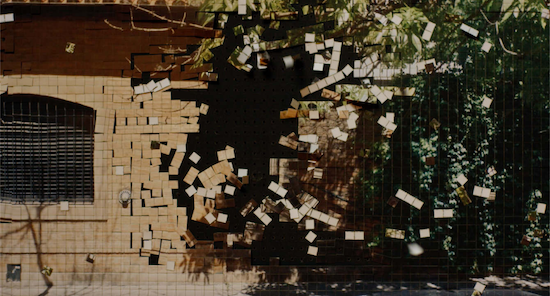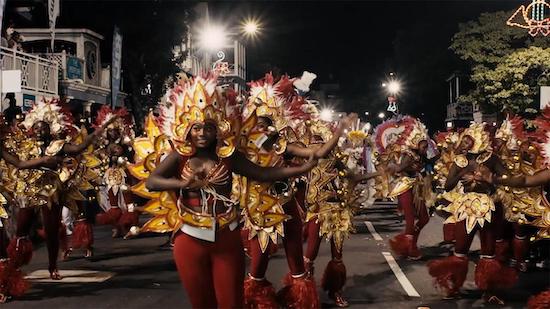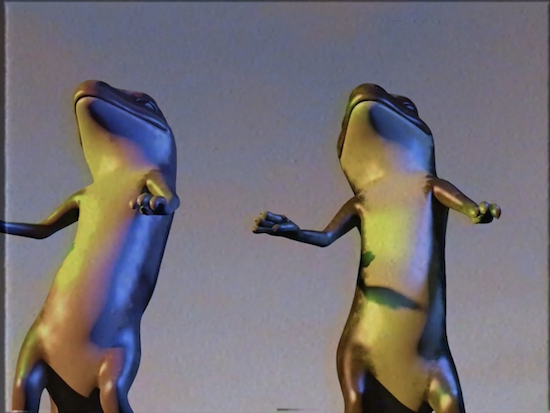A lot can happen in a minute. Nothing shows this better than the short film. The London Short Film Festival has been an incubator for exciting new filmmakers working in this truncated format since 2003, and this year is no different.The 2021 virtual line-up features both established names and upcoming international talents redefining what’s possible in the short film format, showing us new worlds and perspectives in a matter of minutes. Although there is no overarching theme for the festival, the connecting element of many of the best shorts is how our relationship to our environs is malleable and ever-changing, and our definitions of home are affected just as much by time and place as they are identity. These shorts turn the concept of home inside out: they attend to how the political, racial, and economic restraints of place can shape our countries and communities––and in turn shape our very identities. In a time where our relationships to places both public and private are changing due to the continuing constraints and challenges of COVID-19, this exploration of home, and what that even means in and beyond the confines of place, is vital.
If there would be a mission statement of sorts for this exploration, it would be Melisa Liebenthal’s Aquí y Allá (2019). Through screen recordings of Google Maps, family photographs, and long shots of nearly empty city streets at dusk, Liebenthal tells the transnational story of her family beginning with her German grandfather’s escape to China due to the threat of Nazi Germany. Her grandmother and grandfather meet in China, but move to Argentina with their children once Mao takes power. Liebenthal’s family settles in Argentina, but the director––who narrates her story via haunting voice-over––is currently living in France, causing her to question the ways identity is tied to place and can be so easily displaced. Larry Achiampong’s The Expulsion (2019) offers another rumination on the deep sociopolitical undercurrent to our definitions of place, through his elegiac portrayal of a migrant woman working as a custodian in London’s West End. We accompany this relatively anonymous woman as she cleans offices, kitchens, and hallways in nondescript buildings––the repetitive imagery of corporate buildings and transient spaces highlighting the monotonous labor of her work. As we watch her clean, an ambient soundtrack plays in the background as a voice recites a monologue about growing up in London and navigating life as a part of the non-white working class. The explorations of home––or more precisely, the complicated explorations of belonging––are political in the most visceral, personal ways.

The festival’s search for home turns surreal in Meriem Bennani and Orian Barki’s 2 Lizards, an eight-part series originally released on Bennani’s Instagram account charting the early days of the COVID-19 pandemic from the perspective of two lizard roommates in anthropomorphized New York. Together, the lizards (voiced by Bennani and Barki) attend the city’s Black Lives Matter protests, have socially distanced meet-ups with their other animal friends, and walk around Brooklyn. Their experience of New York in a moment of crisis is one that fundamentally changes their relationships to their city, best illustrated in the lizards’ trip to a apocalyptically empty Times Square or their chat with a friend who has to leave the lizards behind and move back in with her parents overseas because she can no longer pay her rent. The series of shorts is a wholly unique exploration of quarantining in New York––a bittersweet and playful look at how the identities of the city and its citizens shifted over the course of a few months. Another title, Wong Ping’s Fables 2, similarly uses the animals-as-humans device to tell fables that illustrate the growing tensions that led to Hong Kong’s pro-democracy protests. These technicolor, darkly humorous tales, of murderous rabbits and an entrepreneurial cow who meets his demise, expose the interpersonal violence between communities that can manifest in the age of late capitalism and surveillance, all made possible by the technology that continues to permeate our everyday lives. The narrative turns in these stories, in which animals are used as a proxy for our human troubles, are disarmingly clever, allowing us to view perceptions of our hometown trials and tribulations with a sense of objectivity.

Another festival highlight is Rhea Storr’s 2020 short Here Is the Imagination of the Black Radical, an urgent portrait of Junkanoo, a version of Carnival that emerged in the Bahamas. Storr frames these celebrations, parades, and brightly colored costumes as afrofuturist, highlighting the potential that imaginative and regenerative art has for the political future of Black people in the Carribean and beyond. As Storr films one of the parade’s participating groups, the hyperspecificity of local tradition can be viewed as a political act, at once reckoning with a place’s history and dreaming of its liberated future. Here Is the Imagination of the Black Radical is a beautiful, meditative short that reels in the lights, colours, and moving bodies of this community ritual. Storr’s work enshrines Junkanoo and its traditions within the city context, showcasing how expressions of home can be a form of vibrant and righteous advocacy for Black, Asian, and Indigenous people.
We are in a period of flux: simultaneously confined to one place and severed from the people and rituals that make that place home. The best films at London Short Film Festival tackle this problem head on, exploring the ways we tie our identities to a location and the ways we can so easily feel displaced. The works of these filmmakers show how defining our homes is an act of political and personal importance. And more than anything, they show how a sense of place can shift in the blink of an eye.
The 2021 London Short Film Festival runs until January 24


